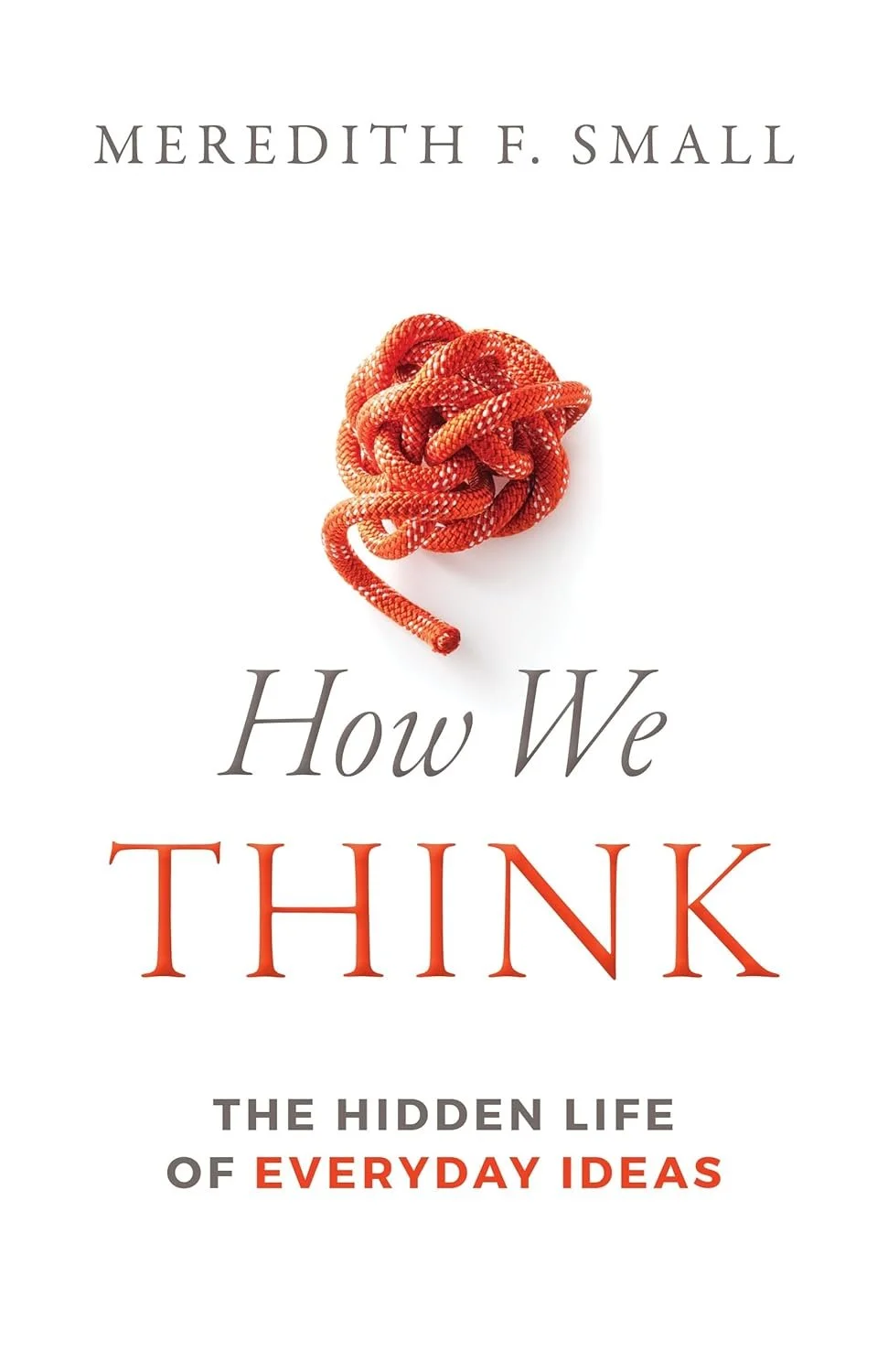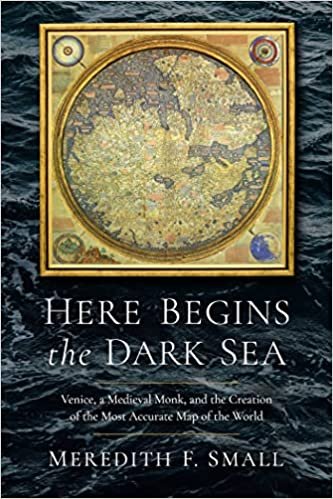Meredith F. Small is a Professor Emerita at Cornell University and Visiting Scholar in the Department of Anthropology at The University of Pennsylvania. She is the author of Inventing the World: Venice and the Transformation of Western Culture, published in 2020 by Pegasus Books. Dr. Small received a Ph.D. in Biological Anthropology from the University of California, Davis, and spent several years studying the behavior of macaque monkeys in captivity and in the wild. Although trained as a primate behaviorist, Small is now most interested in how the intersection of biology and culture influences human behavior.
In addition to numerous publications in academic journals, Dr. Small is a science journalist and her work has appeared in Discover, Natural History, Scientific American, and New Scientist, among many other magazines and newspapers. Small was also a regular commentator for National Public Radio’s “All Things Considered” and for two years she wrote a weekly column, Human Nature, for LiveScience.com She is the author five other books including Female Choices, What’s Love Got to Do With it? The Evolution of Human Mating, Our Babies, Ourselves; How Biology and Culture Shape the Way We Parent, Kids, and The Culture of Our Discontent; Beyond the Medical Model of Mental Illness.
Dr. Small received the Anthropology in Media Award from the American Anthropological Association, and her work has been chosen twice for The Best Science and Nature Writing volumes from Houghton-Mifflin. She is Weiss Presidential Fellow for excellence in teaching at Cornell University and has been also honored with the Russell Award for Teaching and an Outstanding Educator Award from the Merrill Presidential Scholar Program at Cornell.
How We Think: The Hidden life of Everyday Ideas by Meredith F. Small, The American Philosophical Society Press, Spring 2026
A sweeping, thought-provoking exploration of how humans think about the world and themselves.
Humans are the product of millions of years of evolution as well as various forces of culture that influence how we think. Humans also spend much of their brain power on self-reflection. We want to understand ourselves, to decide if there is a universal “human nature” or if we are cultural beings that can think our way out of everything. Can we agree on who we are and what motivates our thoughts? What is the purpose of such an enormous brain? Does it guide us or restrict us?
A sweeping, thought-provoking exploration about how humans, as a species and as individuals, think about the world and themselves, How We Think presents essays about research, questions the way humans use their minds, and considers how that information informs each of us about ourselves. This is a book for everyone―for those interested in anthropology and human behavior and the “big questions” about who we are. How We Think takes the anthropological view about the human thought process, a view that is both evolutionarily deep and widely cross-cultural, always focusing on what makes humans so different from each other, although we are also universally so much alike.
Here Begins the Dark Sea: How a 15th Century Venetian Monk Drew the Most Accurate Map of the World and Foresaw the Future by Meredith F. Small, Pegasus Books, 2023
The remarkable story of the cartographic masterpiece—the Venetian mappa mundi—that revolutionized how we see the world.
In 1459 a Venetian monk named Fra Mauro completed an astonishing map of the world. Seven feet in diameter, Fra Mauro’s mappamundi is the oldest and most complete Medieval map to survive into modernity. And in its time, this groundbreaking mappamundi provided the most detailed description of the known world, incorporating accurate observation, and geographic reality, urging viewers to see water and land as they really existed. Fra Mauro's map was the first in history to show that a ship could circumnavigate Africa, and that the Indian “Sea” was in fact an ocean, enabling international trade to expand across the globe. Acclaimed anthropologist Meredith F. Small reveals how Fra Mauro’s mappamundi made cartography into a science rather than a practice based on religion and ancient myths.
Here Begins the Dark Sea brings Fra Mauro’s masterpiece to life as a work of art and a window into Venetian society and culture. In telling the story of this cornerstone of modern cartography, Small takes the reader on a fascinating journey as she explores the human urge to find our way. Here Begins the Dark Sea is a riveting testament to the undeniable impact Fra Mauro and his mappamundi have had over the past five centuries and still holds relevance today.
“A study of one of history’s most influential maps. Small provides a fascinating exploration of the impressively detailed mappa mundi created by Venetian monk Fra Mauro. Interesting and approachable, this book will appeal to any student of geography or world history.” — Kirkus Reviews
“A great book on a great map: Meredith Small’s book charts how Venice and one of its monks created medieval Europe’s most profound and beautiful world maps. A tour de force.” —Jerry Brotton, author of A History of the World in 12 Maps
Inventing the World: Venice and the Transformation of Western Civilization by Meredith F. Small
Pegasus Books, 2020
An epic cultural journey that reveals how Venetian ingenuity and inventions—from sunglasses and forks to bonds and currency-shaped modernity.
How did a small, isolated city—with a population that never exceeded 100,000, even in its heyday—come to transform western civilization? Acclaimed anthropologist Meredith Small, the author of the groundbreaking Our Babies, Ourselves examines the the unique Venetian social structure that was key to their explosion of creativity and invention that ranged from the material to social.
Whether it was boats or money, medicine or face cream, opera, semicolons, tiramisu or child-labor laws, these all originated in Venice and have shaped contemporary notions of institutions and conventions ever since. The foundation of how we now think about community, health care, money, consumerism, and globalization all sprung forth from the Laguna Veneta.
But Venice is far from a historic relic or a life-sized museum. It is a living city that still embraces its innovative roots. As climate change effects sea-level rises, Venice is on the front lines of preserving its legacy and cultural history to inspire a new generation of innovators.
"Venice does not lack admirers, but this is an inventive addition. An anthropologist at Cornell, Small emphasizes the city’s social structure as she describes “how one small place had an outsized influence on the development of Western culture.” Venice lovers already familiar with plaudits by other travelers and historians will enjoy this different perspective." — Kirkus Review
"Small catalogs a dizzying array of Venetian innovations in this illuminating account. Small enlivens her research with personal anecdotes about her love for Venice, and moves fluidly from one topic to the next. The result is a delightful and informative cabinet of wonders." — Publishers Weekly



